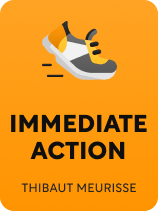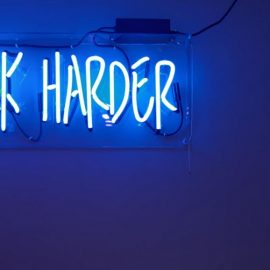

This article is an excerpt from the Shortform book guide to "Immediate Action" by Thibaut Meurisse. Shortform has the world's best summaries and analyses of books you should be reading.
Like this article? Sign up for a free trial here.
How do outside distractions prevent us from getting work done? Why is a routine the best way to improve your focus?
One of the reasons we procrastinate is that we have trouble focusing on what we need to be doing. Immediate Action by Thibaut Meurisse says that sometimes we’re overstimulated, distracted, or otherwise unable to pay complete attention to the task at hand.
Continue reading to learn how to improve your focus with a routine.
Cultivate Your Ability to Focus
Meurisse contends that being in the wrong mental space can keep us from immersing ourselves in our work and focusing on the work we need to get done. Before getting into how to improve your focus, you need to understand the two different mental experiences that interfere with our ability to work productively.
First, overstimulation—the experience that your brain or senses are overwhelmed by all of the things demanding your attention—is common when we can access addictive social networks or an endless loop of YouTube videos at all times. Meurisse writes that even worse, the need to divert ourselves with these activities feels more compelling the more we indulge it. Second, distraction comes in the form of tasks that feel productive but prevent you from making progress on more important tasks. (For example, your email inbox might feel urgent but can distract you from tasks that are much more critical to your goals.)
(Shortform note: We all have trouble focusing. Chris Bailey, author of Hyperfocus, writes that our brains are even “wired for distraction.” But like Meurisse, Bailey believes that it’s not just distraction, but also overstimulation, that hurts our focus. The modern world is so stimulating that we change our focus on average every 40 seconds. Each time, our brain is rewarded with a hit of dopamine, a chemical that makes us feel good. To increase your attention span, you have to decrease this overstimulation of your brain. Bailey advises deleting unnecessary apps, using software that blocks the internet, or leaving your phone in another room. By reducing demands on your attention, you can focus more and accomplish more of what you intend to do.)
There’s a simple solution that can help with overstimulation, distraction, and other issues with focus, according to Meurisse: building an effective routine. He writes that procrastination has become a habit for many of us. But by building a daily routine, you can intentionally cultivate habits that help you to get your work done on a timely basis.

———End of Preview———
Like what you just read? Read the rest of the world's best book summary and analysis of Thibaut Meurisse's "Immediate Action" at Shortform.
Here's what you'll find in our full Immediate Action summary:
- How procrastination was useful in early human evolution—but not anymore
- How to face your procrastination habit head-on and build healthier habits
- Why we tend to do nothing when we have too much to do






